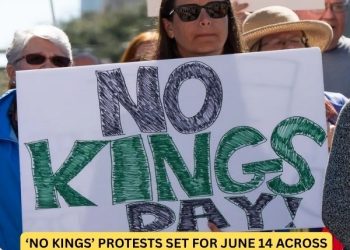FRESNO, California — A Madera man central to a major drug trafficking ring in California’s Central Valley has been sentenced to over 21 years in federal prison for distributing methamphetamine and fentanyl, federal prosecutors announced Tuesday.
Emilio Hernandez Yesca, 31, received a sentence of 21 years and 10 months from U.S. District Judge Jennifer L. Thurston. His conviction follows a multi-agency investigation into the distribution of synthetic drugs across the Central Valley, a region grappling with a surge in fentanyl-related overdose deaths.
Court documents show that Hernandez, along with co-defendant Jorge Perez, 28, also of Madera, ran a trafficking network responsible for moving thousands of fentanyl pills and multiple pounds of methamphetamine between October 2020 and March 2021. The sales escalated from 1,400 fentanyl pills in fall 2020 to a pound of meth in early 2021.
The operation came to a halt on March 2, 2021, when law enforcement stopped the two men en route to deliver 5,000 fentanyl pills and three pounds of meth. A loaded firearm was found under the driver’s seat.
Perez was previously sentenced to 11 years and 10 months in federal prison.
The investigation was led by Homeland Security Investigations in partnership with the DEA and local agencies, including the Madera County Sheriff’s Office, California Highway Patrol, and several municipal police departments. It was part of the Organized Crime Drug Enforcement Task Forces (OCDETF) initiative, which targets major criminal networks through a coordinated, intelligence-led approach.
This case also falls under the DOJ’s Operation Synthetic Opioid Surge (S.O.S.), a national strategy launched in 2018 to reduce synthetic opioid supplies in high-impact areas. California’s Eastern District is one of ten regions involved, reflecting the Central Valley’s growing role in large-scale drug distribution.
The large quantities of fentanyl and meth involved highlight the federal government’s sharpened focus on synthetic opioids, which continue to fuel a deadly national crisis. While this case has concluded, it’s a stark reminder that rural communities like Madera remain deeply affected by the reach of drug trafficking networks.










